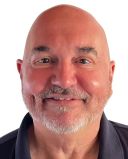Trauma
Tragedies Happen: It's Up to You to Grow Afterward
An interview with Stephen Joseph on his book "What Doesn’t Kill Us."
Posted July 11, 2023 Reviewed by Abigail Fagan
We all must face difficult events in our lives. What has happened cannot be undone. Our only choice is how to live with what has happened. —Psychologist Stephen Joseph in What Doesn’t Kill Us: The New Psychology of Post-traumatic Growth
Stephen Joseph is a professor and co-director at the University of Nottingham (U.K.) Center for Trauma, Resilience, and Growth. He writes, “When adversity strikes, people often feel that at least some part of them—their views of the world, their sense of themselves, their relationships—has been smashed.”
This is where choice comes in. “Those who try to put their lives back together exactly as they were remain fractured and vulnerable,” Joseph writes. “But those who accept the breakage and build themselves anew become more resilient and open to new ways of living.”
Here is an excerpt from the Q and A interview I did with Joseph. I use material from it to close out my book, Stonewall Strong.
John-Manuel Andriote: You emphasize that we are each and all responsible for either our own post-traumatic growth or remaining stuck in PTSD. Could you explain what that responsibility looks like in practical terms? Does it mean seeking a therapist, reading helpful books, learning to make conscious choices to "move on"? (I believe it means these things, but of course, I want your view, in your own words.)
Stephen Joseph: We all have a choice about how we respond to events in our lives, this was a point made so eloquently by Viktor Frankl in his description of his experiences in the concentration camps, and subsequently by the humanistic psychologists who have emphasized the importance of taking responsibility for our own lives. That’s not to say that we are responsible for the tragedies that befall us, or in control of the overwhelming emotions that we might feel, but in this way whether we adopt a growthful attitude to life and its challenges is our choice.
John-Manuel Andriote: Please describe what 're-authoring our stories' looks like. Is it an effort to wrestle down troubling thoughts/memories when they pop up? How do we keep them down? Or will they pop up, even occasionally, and how do we deal with them when they do?
Stephen Joseph: We all tell a story about who we are. A lot of the time we might not recognize it as a story because to us it is our reality, but really so much of it is a story in which we are the hero, the victim, or whatever, and we can reframe it very differently if we choose. In my book, I quote Viktor Frankl who told the anecdote of one of his patients, an elderly doctor who years after the death of his wife remained distressed.
Frankl asked him what it would have been like if the doctor himself had died before his wife. The doctor replied that it would have been awful as she would have suffered terribly. Frankl pointed out that the wife had been spared because the doctor had taken on the burden of suffering. The doctor shook Frankl’s hand and left his office with a new sense of purpose. The point is to show how we can tell a different story.
John-Manuel Andriote: You write in What Doesn’t Kill Us that belonging and acceptance are keys to recovery from trauma. Could you suggest what this might mean for the gay community and our community organizations? Should they actively and intentionally foster a sense of belonging and acceptance and how can that message be conveyed by, for example, an LGBT community center?
Stephen Joseph: Isolation hurts people, so whatever we can do to support others in their times of challenge, as we would want to be supported ourselves, is a good thing. Bringing people together who have similar experiences, so that they can share their learnings with each other, is a good thing that centers can do.
John-Manuel Andriote: I recently read someone's bubbly statement that, 'Life is supposed to be fun,' not long after reading What Doesn’t Kill Us, and I thought, 'Um, no.' It struck me as ridiculous—and a recipe for depression and despair for those affected by trauma who, even if they are actively seeking to re-author their stories, feel that while life certainly includes fun and pleasure, it's silly and naive to believe that unless it is 'fun,' there is something wrong with us. What do you think of this idea that 'life is supposed to be fun'?
Stephen Joseph: We are built as human beings to seek pleasure, but what’s wrong with the message that life is supposed to be fun is that it has to be understood within the context that life isn’t always going to be fun. If we set our expectations that life will be endless fun, we are in for disappointment. And it makes it hard to be open to others when things aren’t going well as we may think of ourselves as failing.
John-Manuel Andriote: Do you have any suggestions for how older gay men—those of us who have re-authored our stories and experienced post-traumatic growth—can or should be mentors and role models for younger gay men, who haven't yet developed the tools needed for post-traumatic growth?
Stephen Joseph: Always important is to be available to listen, not necessarily to offer solutions or advice, but simply be willing to hear what others say. The better we can listen, the more other people can find their own solutions and answers to the challenges of life.




